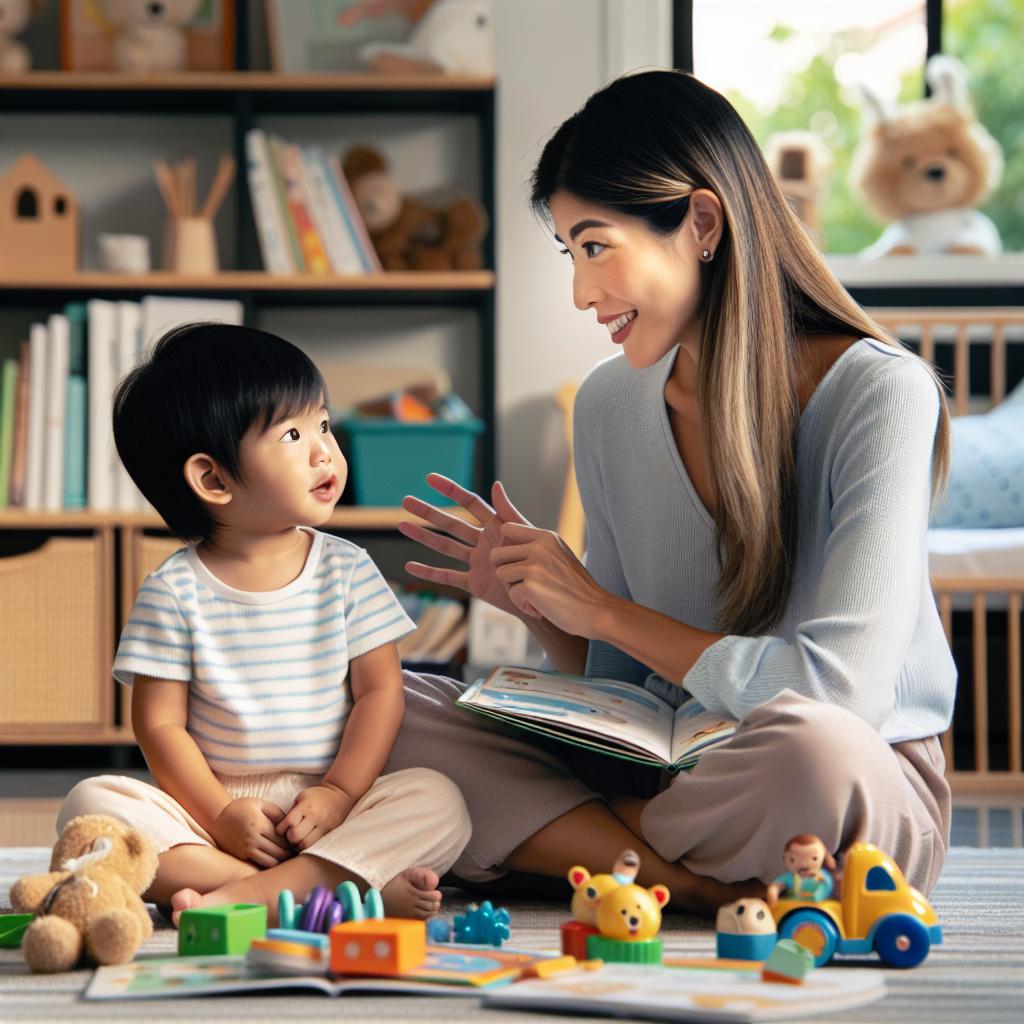Building a Strong Foundation in Communicating with Toddlers
Understanding Toddlers’ Communication Needs
For any parent, navigating the world of toddler communication can be a challenge. Toddlers are just beginning to use language as a tool, and their abilities can vary widely. Fortunately, resources like Raising Children and Zero to Three offer a wealth of information to guide parents as their toddlers start to develop these essential skills.
Building strong connections and facilitating positive interactions now can set the stage for a lifetime of effective communication. One simple change that made a big difference for us? Adapting our communication style to match our toddler’s development. One strategy we found effective was talking to our toddler about what was happening around us, rather than constantly asking questions or giving commands.
Strategies for Better Communication
We’ve found a variety of strategies that have worked great in our household for communicating with our toddler:
- Active listening: By focusing on our toddler when they are speaking, we show them that their voice matters. This encourages more communication and builds their confidence.
- Using short, simple sentences: Toddlers are still learning language, so keeping our sentences short and simple helps them understand and respond better.
- Mirroring and validating feelings: When our toddler is upset, we try to name and validate the feeling they’re experiencing. This helps them feel understood and teaches them how to express their emotions.
- Using encouraging language: Instead of simply saying “No,” we try to offer positive alternatives or explain the reasoning behind our rules or requests.
- Reading books together: Books are a great way to improve language skills! We often discuss the pictures and story, encouraging our toddler’s critical thinking skills.
Fostering Communication in Everyday Activities
We believe that every opportunity can be a chance to enhance communication skills. During our daily activities such as meal times, bath time, and bedtime, we actively involve our toddler in conversations. This Better Health Victoria article offers great suggestions on how to incorporate more communication into everyday activities. Making communication a focal point during these activities, rather than an afterthought, emphasizes to our toddler that their input is valuable.
Supporting Communication Growth and Progress
Tracking and celebrating progress is another key aspect of fostering toddler communication. We understand that every child is different and progresses at their own pace. The expert team at KU’s Communication and Assistive Technology Services provides helpful guidelines to recognize and support your child’s communication milestones.
In our own experience, we’ve cherished our toddler’s communication journey from our first camping trip adventure to the challenges of breastfeeding an older baby to our memorable first Christmas celebration.
Proactive and positive communication with your toddler can be a rewarding and enriching experience. It can foster a deeper bond and aid significantly in their overall development. With patience, consistency, and the right strategies, you can effectively communicate with your toddler every day.
Investing Time in Interactive Games
Everyday playtime can also be a playground for building communication skills with your toddler. Interactive games such as puzzles, building blocks, and simple make-believe or role-play scenarios can become tools for your toddler to express thoughts, ideas, and emotions. Surrey Place provides a comprehensive resource on how interactive games can be valuable assets to stimulate language development.
Adopting Consistent Routines
Routine activities provide a great structure for repeated language exposure. Simple day-to-day routines such as getting dressed, grocery shopping or cleaning up toys are opportunities for consistent language use. These are real-life situations where they can apply the vocabulary they’re learning.
Choosing Suitable Communication Aids
When the usual techniques may not work, other communication aids such as the use of sign language or a picture exchange system can play an instrumental role. If your child is on the autism spectrum, you may find this communication guide especially helpful.
Understanding the Role of Non-Verbal Communication
Besides spoken language, toddlers also communicate through physical gestures and facial expressions. It is important to acknowledge this form of communication and respond appropriately. Whether it’s shaking their heads to indicate ‘no’, pointing at objects, or nodding in agreement, engaging with them reinforces their attempts at communication.
Making Use of Child-Directed Speech
Child-directed speech, often called ‘parentese’, where we speak with exaggerated intonation and simplified words and sentences, can aid language development. According to research, as published in Infants & Young Children, using child-directed speech enhances infant attention and increases the chances of a successful communication exchange.
Leveraging on Teachable Moments
Every interaction can be a teachable moment in your child’s life. From recognizing the sounds of different animals to understanding the concept of up and down, left and right while at a playground, each conversation is an opportunity to introduce new words and phrases, aiding their language growth.
In addition, you can make use of digital learning platforms like Virtual Lab School. Here, you will find an array of free courses focusing on language development and communication.
Don’t Forget the Power of Songs and Rhymes
Songs and rhymes are fun and an oldie but goodie way to teach new words and phrases. Plus, music has a positive effect on mood and builds memory skills!
Patience is Key
Finally, as with all aspects of child development, patience is indeed a virtue while fostering communication skills in your toddler. Misunderstandings and frustrations are bound to occur, but with a calm demeanor and perspective, growth and improvement will follow.
Here’s to each toddler’s unique communication journey! Always remember, every child’s path is different, and all efforts towards their development are not insignificant.
When you actively embrace your toddler’s communication development, every day becomes an exciting adventure and opportunity for growth. So talk, listen, communicate, and enjoy the beautiful ride. Happy Parenting!

